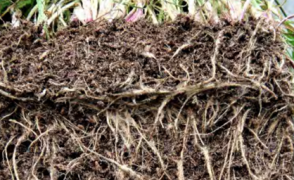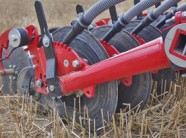
Regenerative Agriculture
Sustainable farming practices are increasingly important for improving soil health, through lower inputs and integrated cropping systems. Assured Agronomy Ltd plays an active role in supporting our clients with regenerative agriculture, an ecological approach to farming that restores degraded soils through carbon capture.
Regenerative agriculture amongst growers has become a keen interest on farm, driven by integrated techniques, the focus is to increase the soil organic matter content which helps improve soil structure and benefits microbial activity.
Key principles to follow for a regenerative system:
- Increase diversity through rotation
- Minimising soil disturbance
- Keeping the soil covered - cover crops
- Integrate livestock into the system through mob or rotational grazing
Soil Health
The latest research has shown that for every 1% increase in soil organic matter per hectare, an additional 35 tonnes of CO2 is sequestered. By growing a diverse range of crops that fit in with the rotation, this can provide long term benefits to soil health as well as lowering pest and disease pressure.
Resource use efficiency
Direct drilling and the use of cover cropping have both demonstrated that good crop establishment can be achieved with minimal soil disturbance. Integrating these methods as part of a low nitrogen strategy helps to increase the organic carbon in soils.
We have continued to see the price of red diesel increase in recent years, with the latest changes to government policy likely to support less cultivations. This is an opportunity to reduce our carbon footprint and to embrace the benefits of moving to a regenerative farming system.
Renewable energy
The concerns over carbon dioxide emissions as well as climate change has increased the awareness of renewable energy. Approximately 40% of growers are using a range of farm by-products to produce low-carbon, clean energy, that could provide power to your farm buildings and wider local communities.
Anaerobic digestion (AD) is one example that generates renewable energy from waste through the controlled breakdown of organic material, including animal manures and energy crops. The biogas produced can be used for electricity and heat generation, whilst another by-product known as digestate is spread as a fertiliser.



